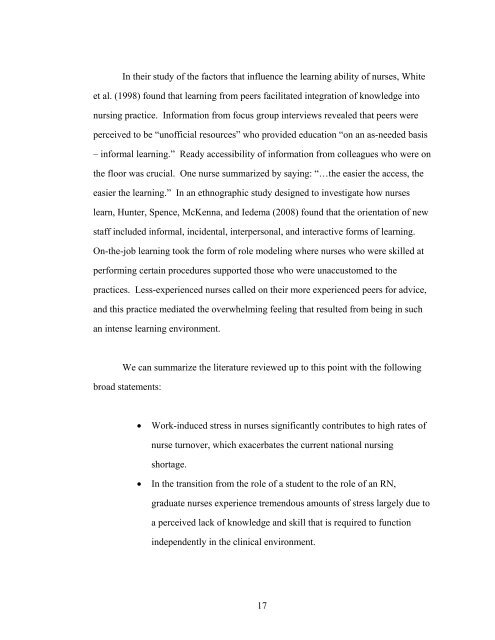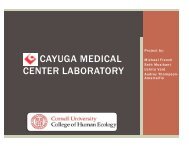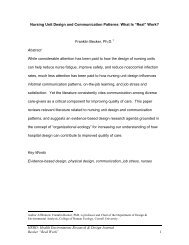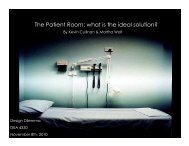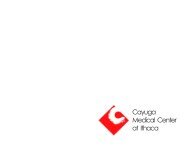The role of physical design and informal communication
The role of physical design and informal communication
The role of physical design and informal communication
Create successful ePaper yourself
Turn your PDF publications into a flip-book with our unique Google optimized e-Paper software.
In their study <strong>of</strong> the factors that influence the learning ability <strong>of</strong> nurses, White<br />
et al. (1998) found that learning from peers facilitated integration <strong>of</strong> knowledge into<br />
nursing practice. Information from focus group interviews revealed that peers were<br />
perceived to be “un<strong>of</strong>ficial resources” who provided education “on an as-needed basis<br />
– <strong>informal</strong> learning.” Ready accessibility <strong>of</strong> information from colleagues who were on<br />
the floor was crucial. One nurse summarized by saying: “…the easier the access, the<br />
easier the learning.” In an ethnographic study <strong>design</strong>ed to investigate how nurses<br />
learn, Hunter, Spence, McKenna, <strong>and</strong> Iedema (2008) found that the orientation <strong>of</strong> new<br />
staff included <strong>informal</strong>, incidental, interpersonal, <strong>and</strong> interactive forms <strong>of</strong> learning.<br />
On-the-job learning took the form <strong>of</strong> <strong>role</strong> modeling where nurses who were skilled at<br />
performing certain procedures supported those who were unaccustomed to the<br />
practices. Less-experienced nurses called on their more experienced peers for advice,<br />
<strong>and</strong> this practice mediated the overwhelming feeling that resulted from being in such<br />
an intense learning environment.<br />
We can summarize the literature reviewed up to this point with the following<br />
broad statements:<br />
• Work-induced stress in nurses significantly contributes to high rates <strong>of</strong><br />
nurse turnover, which exacerbates the current national nursing<br />
shortage.<br />
• In the transition from the <strong>role</strong> <strong>of</strong> a student to the <strong>role</strong> <strong>of</strong> an RN,<br />
graduate nurses experience tremendous amounts <strong>of</strong> stress largely due to<br />
a perceived lack <strong>of</strong> knowledge <strong>and</strong> skill that is required to function<br />
independently in the clinical environment.<br />
17


